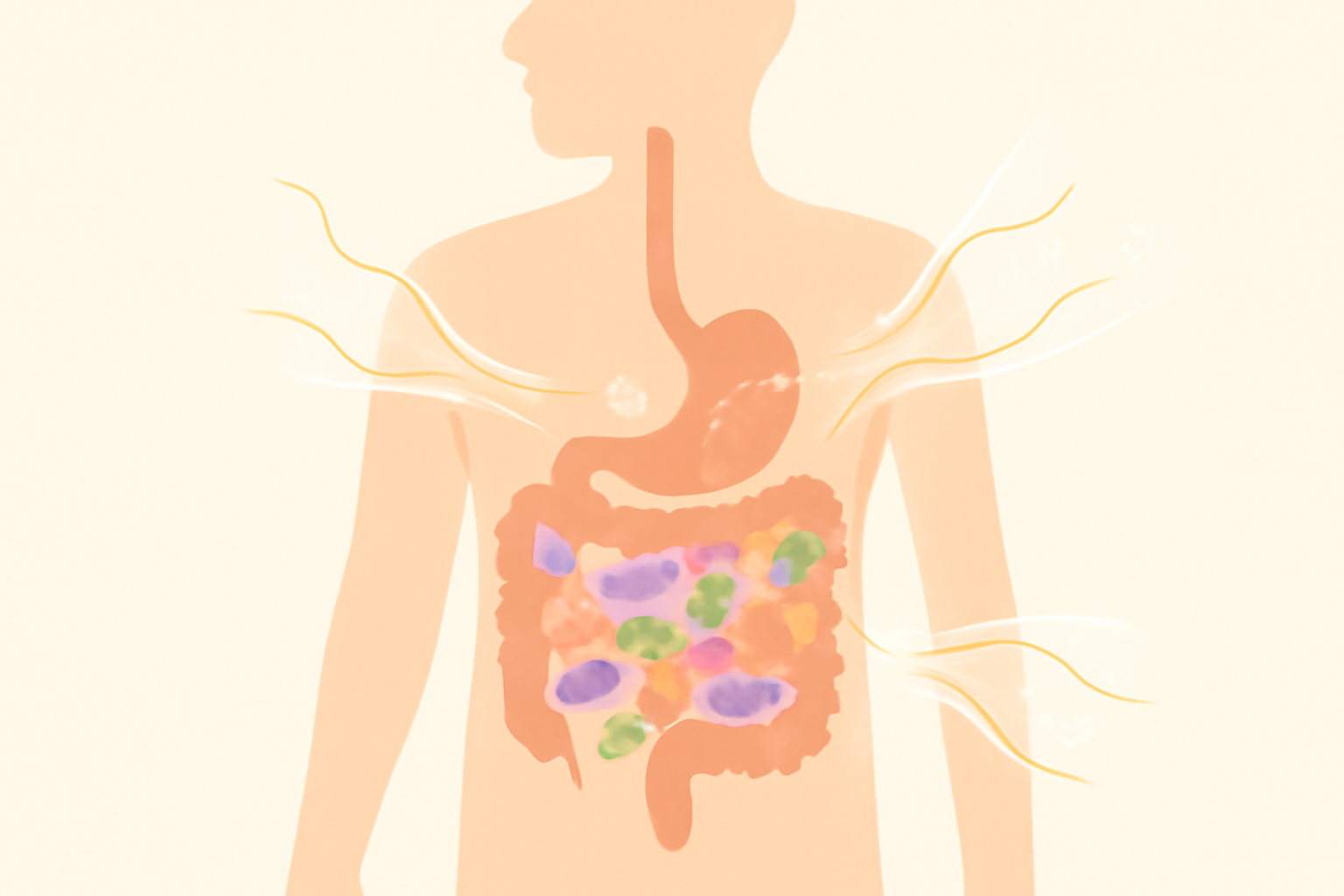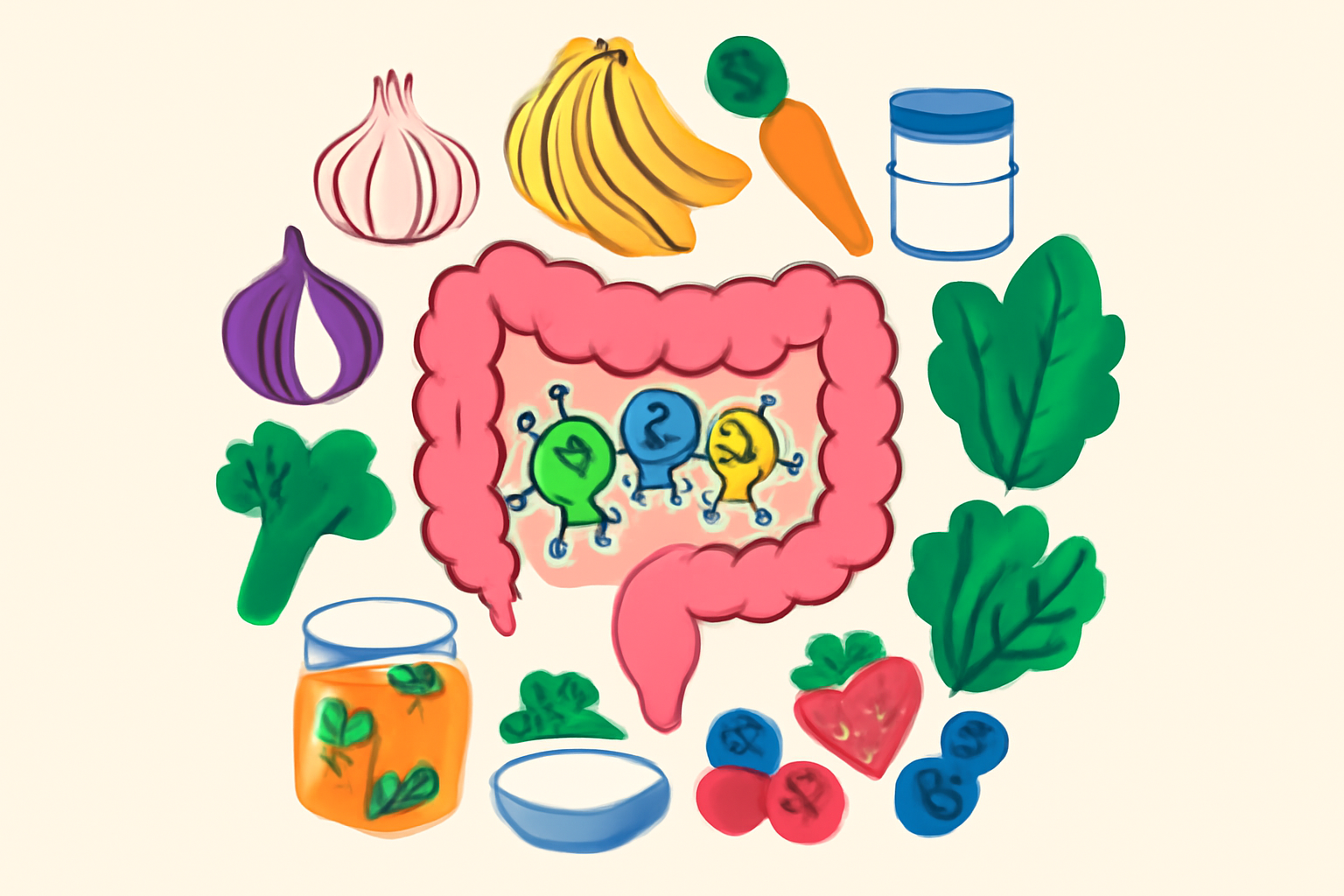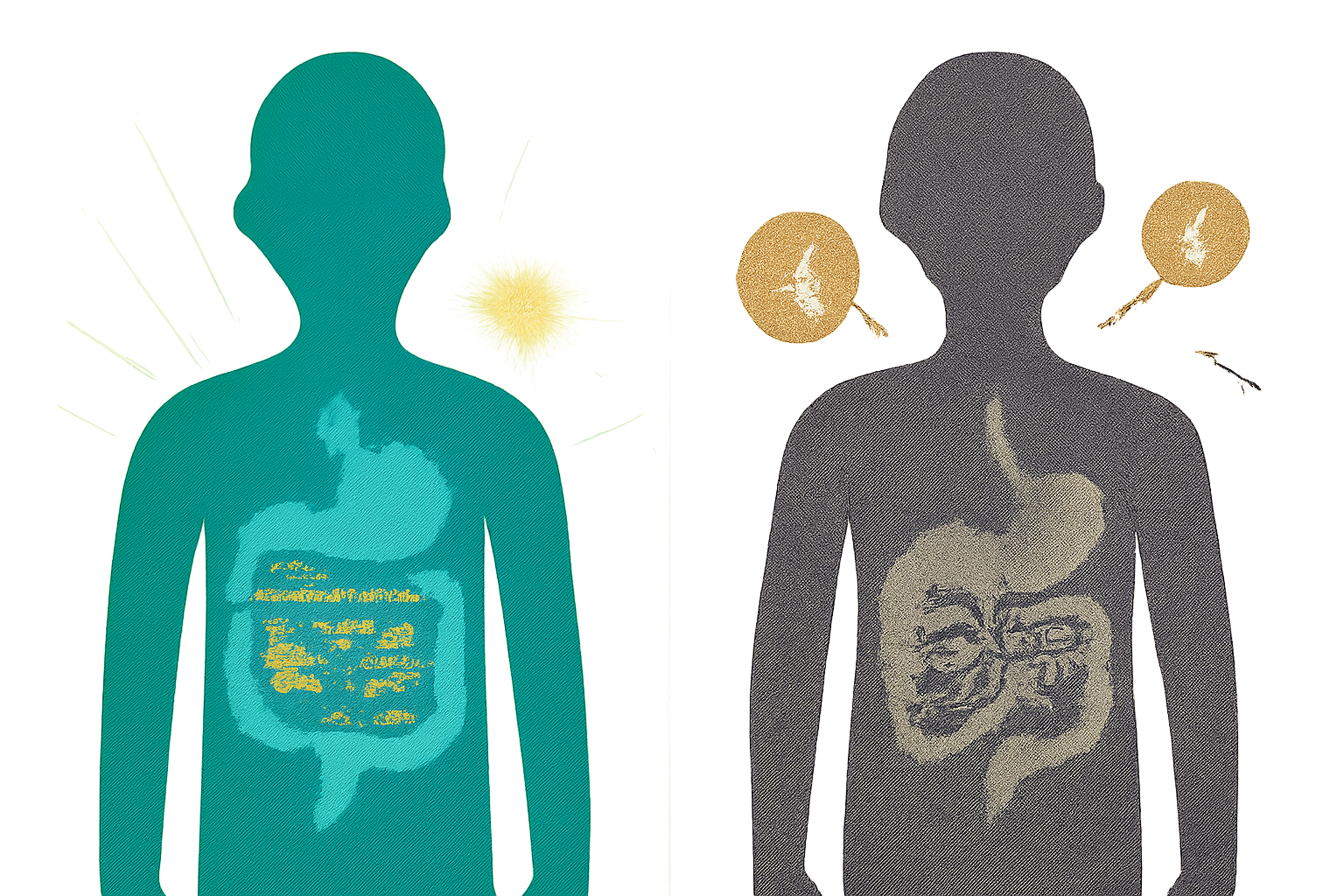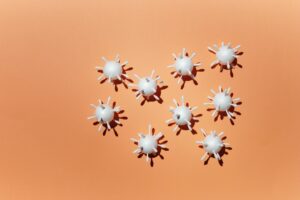How a Happy Gut Boosts Your Daily Energy Levels

Photo by cottonbro studio on <a href="https://www.pexels.com/photo/green-vegatables-on-table-and-person-holding-mason-jar-with-spice-3737698/" rel="nofollow">Pexels.com</a>
The Gut-Energy Connection: Understanding How Your Digestive System Powers Your Day
The Science Behind Your Gut Microbiome and Energy Production
Your digestive tract is home to roughly 100 trillion bacteria – that’s more microorganisms than there are stars in our galaxy. These tiny inhabitants aren’t just passive residents; they’re active participants in how your body generates and maintains energy throughout the day.

Think of your gut microbiome as a hidden power plant. When you eat fiber-rich foods, beneficial bacteria break them down and produce short-chain fatty acids (SCFAs) like butyrate, propionate, and acetate. These SCFAs serve as direct fuel for your colon cells and also travel through your bloodstream to power cells throughout your body. They’re particularly important for mitochondria – the energy-generating structures inside your cells that convert nutrients into ATP, your body’s energy currency.
What’s fascinating is how your gut communicates with your brain through what scientists call the gut-brain axis.
This communication highway consists of the vagus nerve, immune cells, and chemical messengers that constantly relay information between your digestive system and central nervous system. When your gut microbiome is healthy, this communication flows smoothly, supporting mental clarity, focus, and emotional balance – all elements of what we experience as “energy.”
Recent research published in the journal Nutrients has found strong connections between gut bacteria composition and fatigue symptoms. People with imbalanced gut bacteria (dysbiosis) consistently report lower energy levels, increased fatigue, and reduced physical performance compared to those with diverse, balanced gut ecosystems.
Common Signs Your Gut Health Is Draining Your Energy
You might not immediately connect your afternoon slumps to your digestive system, but several warning signs point to this relationship:
That mid-afternoon crash, where you struggle to keep your eyes open despite getting enough sleep the night before, may be your gut talking. When digestion isn’t optimal, your body diverts energy to digestive processes rather than keeping your mind sharp.
Brain fog—that frustrating inability to think clearly or concentrate—is another red flag. Your gut produces about 95% of your body’s serotonin, which helps regulate cognitive function. When gut health suffers, so does mental clarity.
Physical symptoms like bloating, gas, irregular bathroom habits, or unpredictable digestive discomfort are obvious signals. Your body expends significant energy managing these issues, leaving less for your daily activities.
Many people also notice that certain foods trigger both digestive symptoms and extreme fatigue. This connection isn’t coincidental—it reflects how food sensitivities can create inflammation that drains energy reserves.
How Inflammation in the Gut Creates an Energy Deficit
When your gut becomes inflamed—whether from food sensitivities, bacterial imbalances, or stress—it triggers a cascade of energy-draining responses. Your immune system leaps into action, and while necessary for protection, this response requires tremendous energy resources.
Inflammation also damages the delicate intestinal lining, compromising its ability to absorb nutrients properly. Even with a perfect diet, you could be missing out on the very vitamins, minerals, and macronutrients that fuel your energy systems.
At the cellular level, inflammatory compounds directly impair mitochondrial function. Your mitochondria become less efficient at producing ATP, creating an energy deficit that you feel as fatigue, weakness, or lethargy.
How Poor Gut Health Affects Sleep Quality and Energy Levels
Sleep and gut health share a surprisingly intimate relationship. Your gut microbiome influences the production of sleep-regulating hormones like melatonin and serotonin. When gut bacteria are imbalanced, these hormone levels fluctuate, making it harder to fall asleep and stay asleep.
Even mild digestive discomfort can fragment sleep. Acid reflux, bloating, or abdominal pain often causes subtle wake-ups throughout the night that you might not even remember in the morning. These micro-disruptions prevent you from reaching the deep, restorative sleep stages your body needs to recharge.
Research shows this relationship works both ways—poor sleep alters gut bacteria composition, while gut imbalances disturb sleep quality, creating a frustrating cycle that leaves you dragging through your days.
Practical Strategies to Optimize Your Gut Health for Sustained Energy
Energy-Boosting Foods That Support a Healthy Gut Microbiome
Your gut microbiome thrives on variety, and certain foods directly fuel the bacteria that help produce energy.
 Prebiotic-rich foods act like fertilizer for good bacteria. Garlic and onions contain inulin fiber that beneficial bacteria love. Bananas, especially slightly underripe ones, provide resistant starch that feeds gut bacteria. Jerusalem artichokes are prebiotic powerhouses—just a small serving provides enough food for your gut bacteria to flourish for hours, resulting in steadier energy levels.
Prebiotic-rich foods act like fertilizer for good bacteria. Garlic and onions contain inulin fiber that beneficial bacteria love. Bananas, especially slightly underripe ones, provide resistant starch that feeds gut bacteria. Jerusalem artichokes are prebiotic powerhouses—just a small serving provides enough food for your gut bacteria to flourish for hours, resulting in steadier energy levels.
Fermented foods introduce live beneficial bacteria directly into your digestive system. A daily serving of plain yogurt with active cultures delivers millions of helpful microbes. Kefir typically contains an even wider range of probiotic strains than yogurt, making it excellent for microbial diversity. Raw, unpasteurized sauerkraut not only provides probiotics but also important enzymes that aid digestion and nutrient absorption—both crucial for energy production.
Fiber-rich plant foods act as both prebiotics and sweep your digestive tract clean. Beans, lentils, and split peas contain soluble fiber that gut bacteria transform into short-chain fatty acids (SCFAs), which serve as direct fuel for your colon cells and improve overall energy metabolism. Leafy greens provide insoluble fiber that keeps things moving and prevents the energy drain associated with constipation.
Anti-inflammatory foods reduce gut inflammation that can steal your energy. Fatty fish like salmon contain omega-3s that help repair gut lining and reduce inflammatory markers. Extra virgin olive oil contains polyphenols that support beneficial bacteria growth while reducing harmful strains. Berries, particularly blueberries and blackberries, are packed with antioxidants that protect gut cells from damage. Turmeric’s active compound, curcumin, helps maintain gut barrier integrity, preventing energy-sapping leaky gut issues.
Diet Patterns to Avoid: What’s Draining Your Gut and Energy
High-sugar diets feed the wrong kinds of gut bacteria and yeast. When you consume sugar-loaded foods and drinks, you’re essentially feeding harmful microbes like Candida, which can overgrow and push out beneficial bacteria. This imbalance (dysbiosis) directly impacts how efficiently your body produces and uses energy.

Processed foods often contain emulsifiers, preservatives, and artificial sweeteners that disrupt your gut’s bacterial balance. Studies show artificial sweeteners can actually change which gut bacteria thrive, often favoring strains linked to lower energy and increased inflammation.
Low-fiber diets are particularly problematic because beneficial bacteria literally starve without adequate fiber. When your good bacteria don’t get enough food, they can’t produce those critical SCFAs that power your cells. The typical Western diet often provides less than half the fiber needed for optimal gut function.
Erratic eating patterns send confusing signals to your gut microbiome, which operates on daily rhythms. Skipping breakfast, late-night eating, and inconsistent meal timing can throw off your gut bacteria’s metabolic cycles, directly affecting how well they help produce and regulate your energy throughout the day.
Lifestyle Habits That Support Gut-Derived Energy
Regular physical activity improves gut health through multiple mechanisms. Even moderate exercise like a daily 30-minute walk increases gut transit time, preventing the energy drag of constipation. Exercise also promotes microbial diversity, with studies showing active people have more varied and beneficial gut bacteria profiles than sedentary individuals.




